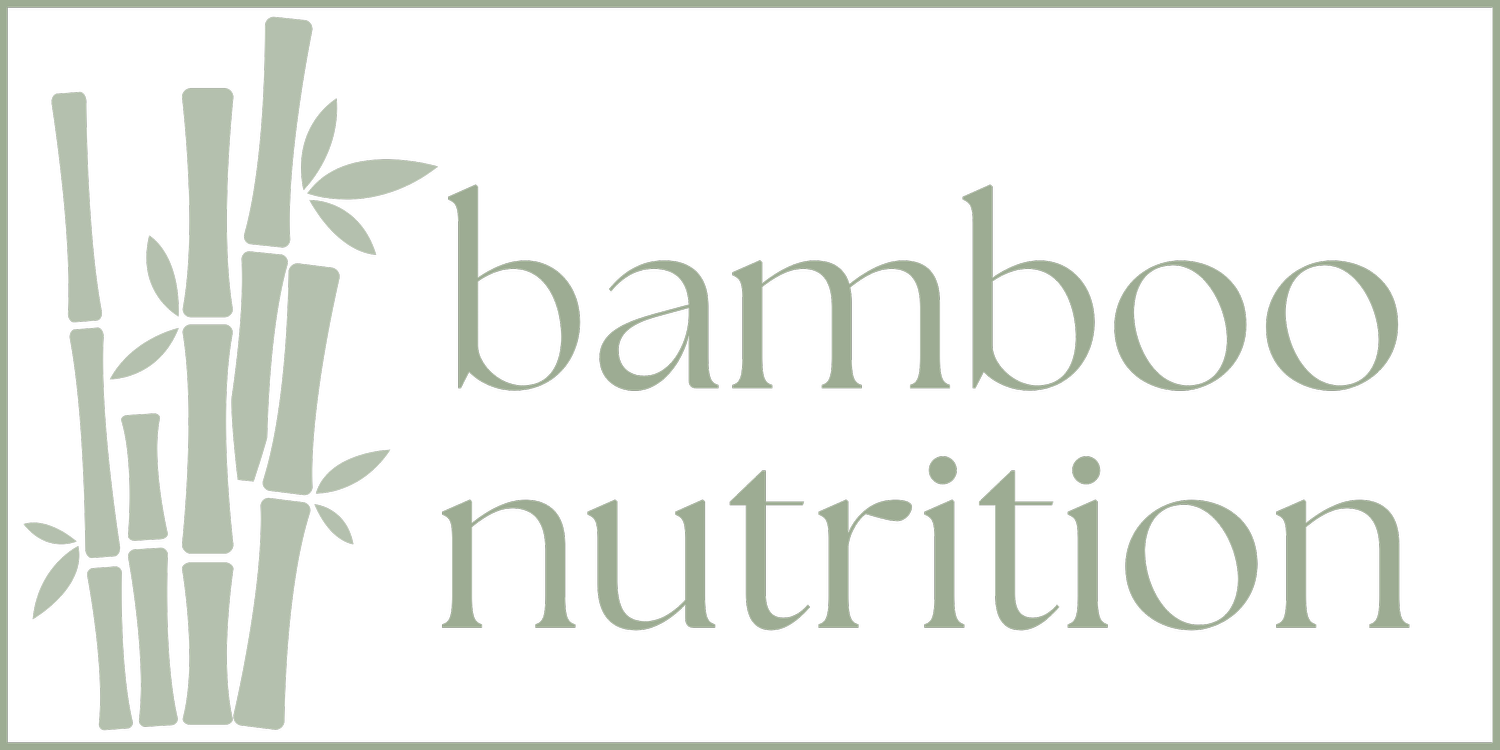This blog post was written by Sarah Nonnenmacher, LPC, a therapist at Bamboo Nutrition.
Ah, “Diet Culture.” Have you heard the term? If you’ve worked with any of our providers here at Bamboo, I’m guessing you may have.
Diet Culture is the pervasive objectification of bodies in our society, causing us all to jump to conclusions about someone’s health, worth, or character based on their size. It is the normalization of calorie-restriction or diet trends geared toward an attempt to change or control one’s body, or someone else’s body. It is the societal pressure to believe one’s body is not “good enough,” thin enough or healthy enough, unless one has reached a certain ideal body type, regardless of if that thinner body is actually one with optional strength and energy.
It’s not easy to notice that the very waters we swim in are toxic, when we and everyone else has been swimming in them for our whole lives. But just like my grandma said, “would you jump off a bridge just because everyone else is doing it?” Just because something is common-place in society, doesn’t mean it is good. “Normal” doesn’t necessarily equal “Healthy.” So what can change once we become aware of Diet Culture and its impacts? Here’s what changed for me:
I stopped congratulating people for weight loss.
“You look so good” doesn't come out of my mouth anymore if I notice someone looks thinner. Congratulating someone for weight loss only reinforces the thin-ideal and whatever behaviors–healthy or unhealthy–it took to get there. I also know now that I have no idea if the conditions of weight loss were healthy for that person. Were they fighting an illness? Were they depressed or stressed and struggling to eat? Were they restricting and making themselves miserable just to avoid feeling shame in a bathing suit? And I have no idea by looking at a person what weight loss may have done to their physical health. Thin does not equal healthy. * I’m not going to celebrate something that could potentially be a physical or mental health risk.
2. I don’t eat compulsively.
Paradoxically, by neutralizing food, I probably eat with more balance and intentionality than when I was trying to “be good.” Here’s how this works:
When I don’t rely on rules to govern my food choices, I start paying attention to how my body feels in response to certain foods, and what it feels like when I’m craving particular foods. When I give myself permission to eat what I’m craving, I end up craving certain foods less often. It’s no big deal to say “no thanks,” to that previously off-limits food when I know I can enjoy it guilt-free now, or any time I want it. And since I’m more in tune with what my body is craving, I’m more likely to notice and satisfy cravings for whole grains, fruits, and veggies, instead of guilt-tripping myself into eating them when I don’t want them.
3. I enjoy exercise more.
Exercise has innumerable physical and mental health benefits, but the “calories in/calories out” formula that many of us have bought into ultimately reduces the value of exercise to an attempt to negate what we eat.
As a result, exercise is often driven by guilt, shame, or some need to compensate. This mental process actually introduces more stress hormones into our blood stream (especially if we are forcing ourselves to do an activity we don’t enjoy). And guess what’s ironic? Those stress hormones make it even harder to lose weight (which may not necessarily be a bad thing, but can be frustrating if you are exercising with the goal of weight loss.) By taking weight loss out of the equation, I’ve been able to find a sport I love, that’s good for my body, relieves stress, and stays fun. No calorie-counting necessary.
4. My self-confidence isn’t based on what my body is doing that day.
Bodies change. Body image changes. Sometimes I like what I see in the mirror; sometimes I don’t. That’s normal. But knowing that weight is not in my (or anyone else’s) direct control frees me from the imagined obligation to control it, and from the irrational sense of failure from not controlling what can’t be controlled. This pill can be hard to swallow, because diet culture and even many medical providers emphasize personal influence over shape and health. But sleep, hydration, stress, activity level, economic status, access to health care, dieting history, genetics and mental health all play a role. Why continue to shame ourselves over something we can’t control? It’s not just unnecessary; it’s counter-productive.
If you’re in eating-disorder treatment, you’ve likely had conversations about diet-culture with your providers. But people in ed recovery are not the only ones negatively impacted by this societal sickness. Everyone can benefit from more awareness and mindfulness of we as a society have bought into and perpetuated these unhelpful thinking patterns. Maybe one day we can reverse the trend, and make space for every body to thrive.
If you’re wanting to work with a dietitian or therapist to reverse these beliefs or thought processes that are keeping you trapped in a negative spiral about weight, food, and body image, our therapists and dietitians can help!
Sources:
*https://pmc.ncbi.nlm.nih.gov/articles/PMC8368050/

